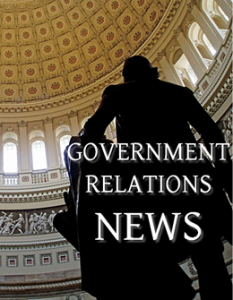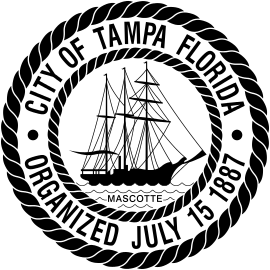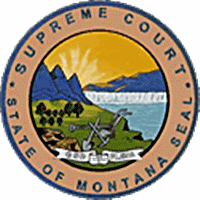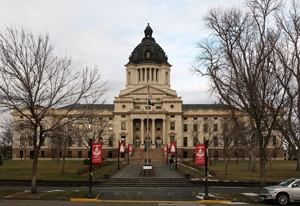February 8, 2017 •
Phoenix City Council Votes to Create Ethics Commission
On Tuesday, Phoenix City Council voted unanimously to move forward with creating a bipartisan ethics commission. The commission would screen allegations and recommend penalties for city officials who violate the city’s gift policies and other related rules. Under a plan laid out by […]
 On Tuesday, Phoenix City Council voted unanimously to move forward with creating a bipartisan ethics commission. The commission would screen allegations and recommend penalties for city officials who violate the city’s gift policies and other related rules.
On Tuesday, Phoenix City Council voted unanimously to move forward with creating a bipartisan ethics commission. The commission would screen allegations and recommend penalties for city officials who violate the city’s gift policies and other related rules.
Under a plan laid out by a City Council member, potential commissioners are screened by a city board and ultimately appointed by City Council. Phoenix’s current ethics rules are unenforceable as the city lacks a mechanism for investigating ethics complaints and recommending punishment.
This is not the first time Phoenix has attempted to create an ethics commission; previous attempts have been unsuccessful in part due to concerns about the commission becoming a political attack tool.
City Council will still need to approve a final ordinance in order to establish an ethics commission. A final vote on the matter is expected this spring.
February 8, 2017 •
Wednesday’s Government Relations and Ethics News
Lobbying “Lobbyists, Corporate Clients Open Wallets for Trump” by Kate Ackley for Roll Call “Lobbying’s Top 50: Who’s spending big” by Megan Wilson for The Hill Arkansas: “House Approves Bill on Gift Exemptions” by John Moritz for Arkansas Online Campaign […]
 Lobbying
Lobbying
“Lobbyists, Corporate Clients Open Wallets for Trump” by Kate Ackley for Roll Call
“Lobbying’s Top 50: Who’s spending big” by Megan Wilson for The Hill
Arkansas: “House Approves Bill on Gift Exemptions” by John Moritz for Arkansas Online
Campaign Finance
Virginia: “Lawmakers Defeat Ban on Campaign Funds for Personal Use” by Alan Suderman (Associated Press) for The Virginian-Pilot
Ethics
“In Age of Trump, Scientists Show Signs of a Political Pulse” by Amy Harmon and Henry Fountain for New York Times
“Melania Trump Says White House Could Mean Millions for Brand” by Julie Bykowicz (Associated Press) for Bloomberg.com
California: “California’s Top Court to Decide Whether Emails and Texts Sent on Personal Devices Are Public Record” by Maura Dolan for Los Angeles Times
Illinois: “Redflex to Pay $20 Million to Chicago to Settle Lawsuit over Bribery Scheme” by David Kidwell for Chicago Tribune
Texas: “Popular Ethics Overhaul Breezes Through Senate, Heads to the House” by J. David McSwane for Dallas News
Utah: “Gold Coins, Posh Trips Form Backdrop in Utah Bribery Trial” by Lindsay Whitehurst (Associated Press) for Fresno Bee
February 7, 2017 •
Tuesday’s Government Relations and Ethics News
Campaign Finance Alabama: “Gov. Robert Bentley Used Campaign Funds to Pay Rebekah Mason’s Lawyer” by Mike Cason for AL.com Mississippi: “Campaign Finance Reports Go Digital” by Zachary Oren Smith for The Daily Journal Ethics “Trump May Be Skirting Transparency Law […]
 Campaign Finance
Campaign Finance
Alabama: “Gov. Robert Bentley Used Campaign Funds to Pay Rebekah Mason’s Lawyer” by Mike Cason for AL.com
Mississippi: “Campaign Finance Reports Go Digital” by Zachary Oren Smith for The Daily Journal
Ethics
“Trump May Be Skirting Transparency Law on Advisory Boards” by Josh Gerstein for Politico
“Vincent Viola, Nominee for Army Secretary, Drops Out” by Susanne Craig for New York Times
“Eric Trump’s Trip to Uruguay Cost Taxpayers $97,830 in Hotel Bills” by Amy Brittain and Drew Harwell for Washington Post
“Trust Records Show Trump Is Still Closely Tied to His Empire” by Susanne Craig and Eric Lipton for New York Times
New Mexico: “Competing Ethics Proposals Raise Questions of Secrecy and Oversight” by Trip Jennings for New Mexico In Depth
West Virginia: “Ethics Committee Oks Thrasher’s Blind Trust” by Phil Kabler for Charleston Gazette
Lobbying
Florida: “Florida’s Six-Year Lobbying Ban Would Be Strictest of All 50 States” by Steve Bousquet for Tampa Times
Oklahoma: “Capitol Influence: Lobbyists need more than money to succeed at state Capitol” by Barbara Hoberock and Randy Krehbiel for Tulsa World
February 6, 2017 •
Vermont Legislation Looks to Strengthen State Ethics Laws
Lawmakers are currently considering a bill to strengthen the state’s ethics laws. Senate Bill 8 would, among other things, prohibit legislators and executive officers from becoming a lobbyist for one year after leaving office; create an ethics commission to, in […]
 Lawmakers are currently considering a bill to strengthen the state’s ethics laws.
Lawmakers are currently considering a bill to strengthen the state’s ethics laws.
Senate Bill 8 would, among other things, prohibit legislators and executive officers from becoming a lobbyist for one year after leaving office; create an ethics commission to, in turn, create a state code of ethics; prohibit campaign donors from entering into no-bid contracts worth more than $50,000; and require municipalities to create conflict of interest policies.
The bill is expected to reach the full Senate this week.
February 6, 2017 •
City of Tampa Launches Online Lobbyist System
The Tampa Ethics Office launched an online system for lobbyists to log meetings with city officials. The system replaces the paper lobbyist disclosure form. Just like in the past, a log entry must be submitted within three days of a […]
 The Tampa Ethics Office launched an online system for lobbyists to log meetings with city officials. The system replaces the paper lobbyist disclosure form.
The Tampa Ethics Office launched an online system for lobbyists to log meetings with city officials. The system replaces the paper lobbyist disclosure form.
Just like in the past, a log entry must be submitted within three days of a meeting with a city official.
Currently, the system functions only as a means to submit meeting logs, however, in the future it is expected to also allow for electronic submission of the annual expenditure report.
February 6, 2017 •
South Dakota Governor Signs Bill to Repeal Initiated Measure 22
On Thursday, February 2, Gov. Dennis Daugaard signed House Bill 1069 into law. The passage of this bill repeals Initiated Measure 22, which was the voter approved ethics and campaign finance overhaul that established various lobbying and campaign finance restrictions. […]
 On Thursday, February 2, Gov. Dennis Daugaard signed House Bill 1069 into law.
On Thursday, February 2, Gov. Dennis Daugaard signed House Bill 1069 into law.
The passage of this bill repeals Initiated Measure 22, which was the voter approved ethics and campaign finance overhaul that established various lobbying and campaign finance restrictions.
Initiated Measure 22 was not in effect since it was enjoined by a circuit court on December 8, 2016.
February 6, 2017 •
Monday’s Government Relations and Ethics News
Campaign Finance “Trump Vows to ‘Totally Destroy’ Restrictions on Churches’ Support of Candidates” by John Wagner and Julie Zauzmer for The Washington Post “State Democrats Say Federal Campaign Finance Probe Has Ended” by Susan Haigh (Associated Press) for The Washington […]
 Campaign Finance
Campaign Finance
“Trump Vows to ‘Totally Destroy’ Restrictions on Churches’ Support of Candidates” by John Wagner and Julie Zauzmer for The Washington Post
“State Democrats Say Federal Campaign Finance Probe Has Ended” by Susan Haigh (Associated Press) for The Washington Times
Ethics
New York: “JCOPE Staff Lays Out Legislative Wish List” by Chris Bragg for Albany Times Union
Pennsylvania: “Council Members Regularly Missing Mandated Ethics Training” by Tricia Nadolny for Philadelphia Inquirer
Pennsylvania: “Farnese Acquitted in Federal Fraud Trial” by Jeremy Roebuck for Philadelphia Inquirer
South Dakota: “Daugaard Signs Ethics Repeal Bill” by John Axtell (Associated Press) for KCSR
Legislative Issues
Washington: “State Lawmaker Defends Dual Jobs in Senate, Trump Administration” by Walker Orenstein for Tacoma News Tribune
Lobbying
“Marijuana Lobby Goes Mainstream” by Reid Wilson for The Hill
Nebraska: “Ernie Chambers Continues Effort to Stop Lobbyist Meals for Senators” by Zach Pluhacek for Lincoln Journal Star
Tennessee: “Analysis: The power of Tennessee lobbyists” by Dave Boucher for The Tennessean
A bill was filed this week seeking to eliminate the Office of the Commissioner of Political Practices and split the duties between the attorney general and the secretary of state. Under House Bill 340, the secretary of state would be […]
 A bill was filed this week seeking to eliminate the Office of the Commissioner of Political Practices and split the duties between the attorney general and the secretary of state. Under House Bill 340, the secretary of state would be responsible for duties related to the filing of ethics, lobbying, and campaign finance reports while the attorney general would assume control of investigative and enforcement duties.
A bill was filed this week seeking to eliminate the Office of the Commissioner of Political Practices and split the duties between the attorney general and the secretary of state. Under House Bill 340, the secretary of state would be responsible for duties related to the filing of ethics, lobbying, and campaign finance reports while the attorney general would assume control of investigative and enforcement duties.
The Office of the Commissioner of Political Practices, which was established in 1975, monitors, enforces, and investigates lobbying, ethics, and campaign finance and is appointed by the governor.
This comes as the current commissioner, Jonathon Motl, is preparing to exit his position pending confirmation of a successor. Motl was appointed three years into a six-year term expiring on January 1 but remained in office awaiting a court decision on the ending date of his term, much to the chagrin of Republican lawmakers who have accused Motl of partisan bias.
The bill’s sponsor believes the office holds too much power for a single person and splitting the authority between agencies will benefit the State’s ethics supervision.
February 3, 2017 •
NYCU Video Digest – February 3, 2017
See what’s happening in government relations this week in our News You Can Use Video Digest. Enjoy!
See what’s happening in government relations this week in our News You Can Use Video Digest. Enjoy!
February 3, 2017 •
News You Can Use Digest – February 3, 2017
National: Fatigued by the News? Experts Suggest How to Adjust Your Media Diet New York Times – Christopher Mele | Published: 2/1/2017 Some say it feels as if we are living inside a blizzard of news, with information constantly bombarding us. […]

National:
Fatigued by the News? Experts Suggest How to Adjust Your Media Diet
New York Times – Christopher Mele | Published: 2/1/2017
Some say it feels as if we are living inside a blizzard of news, with information constantly bombarding us. The result is a fatigue about the headlines – lately about politics – that has prompted some people to withdraw from the news, or curb their consumption of it. Experts said they had not seen data to conclude that consumers had changed their habits to protect their mental health, but added that the news ecosystem had changed drastically over the past five years, accelerating the sense of information overload. “Journalists … should be more involved in managing the insane flow of information and misinformation; it would be better if we had an approach that said, ‘Calm down,'” said media professor Dan Gillmor.
Federal:
Resistance from Within: Federal workers push back against Trump
Washington Post – Juliet Eilperin, Lisa Rein, and Marc Fisher | Published: 1/31/2017
The signs of popular dissent from President Trump’s opening volley of actions have been plain to see on the nation’s streets, at airports in the aftermath of his refugee and visa ban, and in the outrage on social media. But there is another level of resistance to the new president that is less visible and potentially more troublesome to the administration: a growing wave of opposition from the federal workers charged with implementing any new president’s agenda. Federal workers are in regular consultation with recently departed Obama-era political appointees about what they can do to push back against the new president’s initiatives. Some federal employees have set up social media accounts to anonymously leak word of changes that Trump appointees are trying to make. And a few government workers are pushing back more openly.
Trump Ethics Rules Curtail Lobbyists, While Also Loosening Some Obama Restrictions
Washington Post – Matea Gold | Published: 1/28/2017
President Trump signed an executive order that strengthens certain restrictions on lobbying that had been adopted under President Obama, while weakening others. Executive branch employees, including those in the White House, will now be barred for five years after they leave government from lobbying the federal agency where they worked. Under Obama, they had to wait until the end of the administration, meaning a shorter ban for some departing officials. Former executive branch officials will now also be permanently banned from serving as foreign lobbyists.
Trump’s Campaign Paid His Businesses Millions Over Course of Campaign
Politico – Kenneth Vogel | Published: 2/1/2017
President Trump’s campaign spent a total of $12.7 million at businesses run by him and his family members over the course of the 2016 presidential election. The largest sums went to Trump’s airline, TAG Air, which received $8.7 million as Trump used his own jet to fly around the country. Another $2 million went to Trump Tower, the skyscraper that housed his campaign headquarters. The spending at Trump properties, which continued after he won the election, underscores how much he was willing to mingle his political and business operations, from buying meals at his own Trump Grill to renting space at his own golf clubs.
White House Says LGBT Protections for Federal Workers Will Remain
Washington Post – Juliet Eilperin and Sandhya Somashekhar | Published: 1/30/2017
An executive order protecting federal employees from anti-LGBTQ discrimination that was first signed in 2014 by President Barack Obama will continue under President Donald Trump, the White House said. Obama’s order expanded protections in federal hiring, which already barred discrimination on the basis of sexual orientation, to also include gender identity. And it required all companies doing business with the federal government to have explicit policies barring discrimination against gay and transgender workers. It applies to 24,000 companies that collectively employed about 28 million workers, representing about a fifth of the U.S. workforce.
From the States and Municipalities:
Alaska – Is It Time for a Lobbyist Union? Juneau Representative Proposes 2.5 Percent Industry Tax
Alaska Dispatch News – Nathaniel Herz | Published: 1/31/2017
Alaska Rep. Sam Kito introduced an income tax bill recently, but only for lobbyists. House Bill 91 would levy a two-and-one-half percent income tax on the annual earnings of legislative lobbyists. The measure would replace the state’s current $250 registration fee. Kito said the money raised from the tax will support the Alaska Public Offices Commission, which oversees the activity of candidates and lobbyists. He said the Legislature’s Division of Legal Services has not raised any concerns about directing the income tax at a specific group of Alaskans. The bill also calls for a $100 registration fee from anyone running for political office.
Arizona – How The Wrong Letterhead Exposed Phoenix’s Toothless Lobbying Rules
Arizona Republic – Rob O’Dell and Dustin Gardner | Published: 1/31/2017
A Phoenix law firm did not properly register as a lobbyist with the city for two years, and recently filed falsely dated documents that made it appear the firm had followed the law, according to City Attorney Brad Holm. Even though Holm determined Burch & Cracchiolo was not properly registered, he said the city cannot not take action against anyone who violates the lobbyist registration ordinance. Holm said that is because much of the lobbyist ordinance lacks an “enforcement mechanism,” a conclusion reached by the city’s law department recently.
California – Spending on Lobbying in California Tops $309 Million, the Second-Highest Amount Ever Recorded in the State
Los Angeles Times – Patrick McGreevy | Published: 2/1/2017
Interest groups spent $309 million on lobbying government officials in California last year, with the oil industry, environmental organizations, labor unions, and the health industry pouring the greatest amounts into legislative and regulatory battles. It is the second time in the state’s history that more than $300 million has been spent in a year, just short of the record $314 million paid out for lobbying in 2015. Seeing such large amounts spent by wealthy interests is a concern, public advocates say, because it reflects an effort to exert heavy influence on government officials that average citizens may not be able to match.
Massachusetts
Slots Ballot Question Backers Fines $125,000 for Campaign Finance
Boston Globe – Michael Levenson | Published: 1/27/2017
Developer Eugene McCain led the public charge to push Ballot Question 1, which would have allowed the construction of Massachusetts’ second slots parlor on property he owns near the Suffolk Downs race track in Revere. But the measure was defeated in November, and now McCain’s political committee has agreed to pay $125,000 to state campaign finance regulators for hiding the identity of the ballot measure’s backers.
Michigan – Dozens of Former State Employees Now Work for Contractors
Lansing State Journal – Justin Hinkley | Published: 1/27/2017
A Lansing State Journal investigation identified 87 former state employees in Michigan who are now working for major state contractors, consultants, or vendors, nearly half of whom started working for the contractor immediately after leaving state government. Six of those employees are now working for contractors they oversaw while employed by the state government. The investigation found no examples of quid-pro-quos, such as state employees favoring contractors to get a job. But monitoring for such problems is difficult because no one in Michigan regularly tracks where the nearly 49,000 state employees go when they leave the government workforce. Michigan is one of only nine states that do not put limits on where civil servants can work after they leave state employment.
Montana – Motl Can Remain Until Replacement Is Confirmed
Great Falls Tribune – Matt Volz (Associated Press) | Published: 2/1/2017
The Montana Supreme Court ruled that Commissioner of Political Practices Jonathan Motl’s term has expired, but he can remain in office until a successor is found. The ruling comes in a lawsuit that claimed Motl is entitled to a full six-year term ending in 2019, and not the January 1 expiration date set by Gov. Steve Bullock and confirmed by the Montana Senate. Republican legislative leaders have been seeking Motl’s removal from the office amid the dispute, and at one point tried to cut off the commissioner’s pay. Two people have submitted applications to replace Motl: his chief legal counsel, Jamie MacNaughton, and former Billings City Commissioner Michael Larson.
Oregon – Oregon Lawmakers Pay Their Businesses with Campaign Funds – It’s Legal, But Is It Ethical?
Portland Oregonian – Gordon Friedman | Published: 1/27/2017
At least 11 Oregon lawmakers have tapped campaign funds to pay their business or nonprofit in the last decade. The cash expenditures, made by Democrats and Republicans in the state House and Senate, range from a few hundred dollars to tens of thousands. All said their payments fell within the bounds of the state’s campaign finance statute. Oregon law allows candidates to buy goods and services at “fair market value” from their own businesses with campaign funds, said state Elections Director Steve Trout. Candidates are only barred from using campaign funds to buy intangibles, like “political consultancy or advising,” he said. But it appears two lawmakers may have done just that.
South Dakota – South Dakota Senate Sends Ethics Law Repeal to Governor
ABC News – James Nord (Associated Press) | Published: 2/1/2017
South Dakota lawmakers passed a bill that repeals Initiated Measure 22, a voter approved plan that instituted a public campaign finance system, created a state ethics commission, and tightened campaign finance and lobbying laws. Republican lawmakers contend those provisions are unconstitutional. They challenged the overhaul in state court, which put the initiative on hold while the case moves forward. An emergency provision means the bill would take effect immediately and could not be referred back it to the ballot. Lawmakers have filed proposals that would supplant provisions of the initiative, including similar restrictions on lobbyist gifts and more limited watchdog commissions.
Tennessee – In Tennessee, Lobbyists’ Employers Face Few Disclosure Rules
The Tennessean – Dave Boucher | Published: 1/28/2017
Tennessee law allows companies and organizations to report how much they paid lobbyists and how much they spent on other related expenditures as a range, not specific amounts. State law also does not require those companies to provide additional details about what money is spent on or who they were trying to influence. Bureau of Ethics and Campaign Finance Executive Director Drew Rawlins said companies do not need to provide any receipts or detailed accounting information on their semi-annual reports. While laws regulating lobbyists in other states vary, most require far more information from those employing lobbyists.
West Virginia – Potential Conflicts Also Issue for New WV Commerce Secretary
Charleston Gazette – Andrew Brown | Published: 1/31/2017
Woody Thrasher, West Virginia’s new secretary of the Department of Commerce, owns one of the largest engineering firms in the state and he still has to figure out what to do with his businesses now that he has joined state government. This is the first time Thrasher is serving in public office, but it is not the first time his private firm and other companies have interacted with the Department of Commerce and the state’s executive branch. Thrasher said he is removing himself from the day-to-day operations of his businesses but suggests he is not giving up his ownership.
 State and Federal Communications produces a weekly summary of national news, offering more than 60 articles per week focused on ethics, lobbying, and campaign finance.
State and Federal Communications produces a weekly summary of national news, offering more than 60 articles per week focused on ethics, lobbying, and campaign finance.
February 2, 2017 •
Montana Commissioner to Remain in Office Until Successor is Confirmed
The Montana Supreme Court ruled Commissioner of Political Practices Jonathon Motl’s term has expired, but he must remain in office until a replacement is found. A lawsuit was filed in December 2016 claiming Motl, who was appointed to the position […]
 The Montana Supreme Court ruled Commissioner of Political Practices Jonathon Motl’s term has expired, but he must remain in office until a replacement is found. A lawsuit was filed in December 2016 claiming Motl, who was appointed to the position in 2013 by Gov. Steve Bullock, was entitled to a full six-year term ending in 2019.
The Montana Supreme Court ruled Commissioner of Political Practices Jonathon Motl’s term has expired, but he must remain in office until a replacement is found. A lawsuit was filed in December 2016 claiming Motl, who was appointed to the position in 2013 by Gov. Steve Bullock, was entitled to a full six-year term ending in 2019.
The Court stated they did not want to interfere with Bullock’s appointment and later confirmation by the Senate. The order went on to say Motl must remain in office until the Senate confirms a successor.
State Republicans are pleased with the quick ruling, providing an opportunity to confirm a new commissioner during the current 2017 legislative session. Motl’s chief legal counsel, Jamie MacNaughton, and former Billings city commissioner Michael Larson have already submitted applications to be considered as Motl’s replacement.
February 2, 2017 •
South Dakota Senate Sends Ethics Repeal Bill to Governor
The South Dakota Senate voted 27-8 to approve House Bill 1069, advancing the bill to repeal Initiated Measure 22 to Gov. Dennis Daugaard’s desk. Initiated Measure 22 is the voter approved ethics and campaign finance overhaul that established various lobbying […]
 The South Dakota Senate voted 27-8 to approve House Bill 1069, advancing the bill to repeal Initiated Measure 22 to Gov. Dennis Daugaard’s desk.
The South Dakota Senate voted 27-8 to approve House Bill 1069, advancing the bill to repeal Initiated Measure 22 to Gov. Dennis Daugaard’s desk.
Initiated Measure 22 is the voter approved ethics and campaign finance overhaul that established various lobbying and campaign finance restrictions.
Gov. Daugaard has previously stated his support for the repeal bill and is expected to sign the bill into law.
February 2, 2017 •
Thursday’s Government Relations and Ethics News
Lobbying Arizona: “How The Wrong Letterhead Exposed Phoenix’s Toothless Lobbying Rules” by Rob O’Dell and Dustin Gardner for Arizona Republic Arkansas: “Bill Would Let Foreigners Foot Bill for Some Lawmaker Travel” by Michael Wickline for Arkansas Online Campaign Finance South […]
 Lobbying
Lobbying
Arizona: “How The Wrong Letterhead Exposed Phoenix’s Toothless Lobbying Rules” by Rob O’Dell and Dustin Gardner for Arizona Republic
Arkansas: “Bill Would Let Foreigners Foot Bill for Some Lawmaker Travel” by Michael Wickline for Arkansas Online
Campaign Finance
South Carolina: “Upstate’s Judge’s Race Raises Judicial Ethics Question” by John Monk for The State
Washington: “Seattle Candidates Already on Hunt for ‘Democracy Vouchers’” by Daniel Beekman for Seattle Times
Ethics
“Trump Aide’s Deal with Chinese Firm Raises Fear of Tangled Interests” by Sharon LaFraniere, Michael Forsythe, and Alexandra Stevenson for New York Times
“Resistance from Within: Federal workers push back against Trump” by Juliet Eilperin, Lisa Rein, and Marc Fisher for Washington Post
Montana: “Campaign Regulator Can Remain Until Replacement Is Confirmed” by Matt Volz (Associated Press) for McClatchyDC.com
South Dakota: “South Dakota Senate Sends Ethics Law Repeal to Governor” by James Nord for Associated Press
West Virginia: “Potential Conflicts Also Issue for New WV Commerce Secretary” by Andrew Brown for Charleston Gazette
Elections
“Trump Rattles Statehouse Order” by David Siders for Politico
Procurement
“White House Says LGBT Protections for Federal Workers Will Remain” by Juliet Eilperin and Sandhya Somashekhar for Washington Post
Tech and Social Media
“Fatigued by the News? Experts Suggest How to Adjust Your Media Diet” by Christopher Mele for New York Times
February 1, 2017 •
Wednesday Government Relations News Roundup
Lobbying “Is It Time for a Lobbyist Union? Juneau Representative Proposes 2.5 Percent Industry Tax” by Nathaniel Herz for Alaska Dispatch News “Richard Corcoran: Rick Scott’s ethics proposals not personal” by Jim Rusica for Florida Politics “Senate Committee Compares House […]
 Lobbying
Lobbying
“Is It Time for a Lobbyist Union? Juneau Representative Proposes 2.5 Percent Industry Tax” by Nathaniel Herz for Alaska Dispatch News
“Richard Corcoran: Rick Scott’s ethics proposals not personal” by Jim Rusica for Florida Politics
“Senate Committee Compares House and Senate Bills on Lobbyist Gift Restrictions” by Benjamin Peters for Missouri Times
Ethics
“Trump Fires Acting Attorney General Who Defied Him” by Michael Shear, Mark Landler, Matt Apuzzo, and Eric Lichtblau for New York Times
“Two Applicants Seek to Replace Jon Motl as Commissioner of Political Practices” by Troy Carter for Bozeman Daily Chronicle
“Voters to Decide If Crooked State Pols Lose Pensions” by Matthew Hamilton for Albany Times Union
“In Letter, Justice Again Tries to Address Conflicts of Interest” by Andrew Brown for Charleston Gazette
Legislative Issues
“Don’t Like the Ballot Measure Voters Approved? Just Ignore It, Some Lawmakers Say.” by Alan Greenblatt for Governing
Redistricting
“Court to Wisconsin Republicans: Redraw election maps” by Jason Stein for Milwaukee Journal Sentinel
State and Federal Communications, Inc. provides research and consulting services for government relations professionals on lobbying laws, procurement lobbying laws, political contribution laws in the United States and Canada. Learn more by visiting stateandfed.com.

